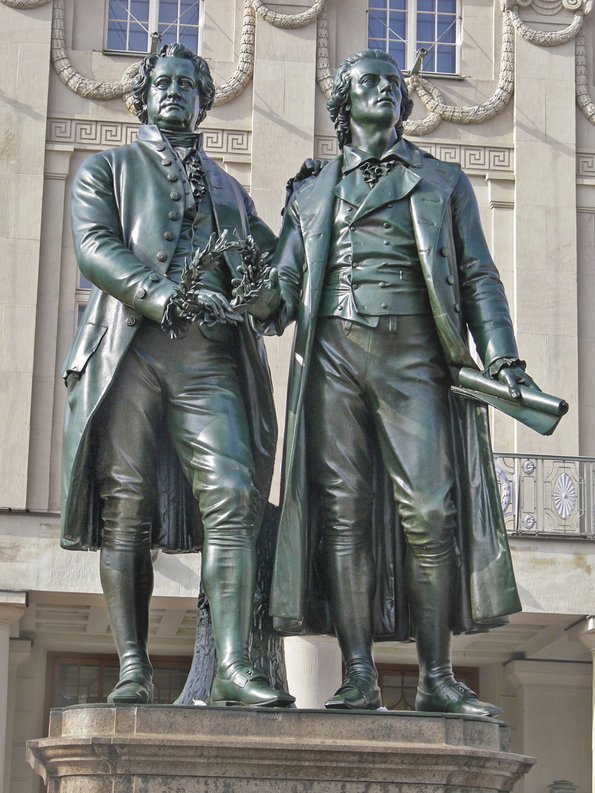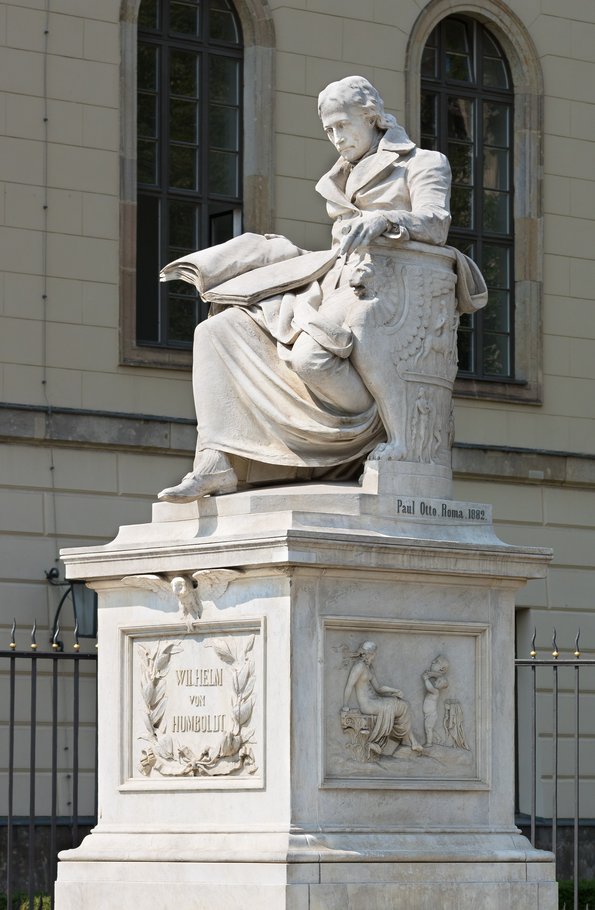Their goal is to defend the freedom of research and teaching
70 German-speaking university lecturers are founding an “network academic freedom”
by Karl-Jürgen Müller
On 3 February 2021, 70 German-speaking university lecturers – including some from Austria and Switzerland – addressed the public as the Netzwerk Wissenschaftsfreiheit (Network Academic Freedom) with a “manifesto”. They also launched a website: https://www.netzwerk-wissenschaftsfreiheit.de/en/home-2/. So far, the website contains a brief introduction to the network and its concerns, a press release from the network, the names of the 70 university teachers, the names of the five-member “steering group” and a “manifesto”.
The manifesto states: “The Network for Academic Freedom is an association of academics with the common concern to defend the freedom of research and teaching against ideologically motivated restrictions and to contribute to strengthening a liberal academic climate.”
“Those who do not play along must expect to be discredited”
The “constitutionally guaranteed freedom of research and teaching”, according to the text, “is increasingly being placed under moral and political reservation. [...] Individuals claim, against the background of their world view and their political goals, to be able to determine which questions, topics and arguments are objectionable. This is an attempt to standardise research and teaching ideologically and to instrumentalise them politically. Those who do not play along must expect to be discredited.” This would “create a pressure to conform […] that increasingly leads to scientific debates being nipped in the bud”.
In addition, there are attempts to “prevent research projects that do not conform to ideological ideas and to prevent the publication of correspondingly unpopular results”. Of particular importance were “the indirect effects of this pressure: They send the signal that one had better refrain from the ‘controversial’ use of one’s freedom of research and teaching in future”. This is creating an environment producing “university members limiting their own freedom of research and teaching because they anticipate being discredited as a person through statements, topics or events”.
For an argumentative debate
The objectives of the network are stated as:
- “counteract all attempts to restrict the academic work of university members. The only limits to this freedom are the constitution and the law,
- actively advocate that intellectual freedom and scientific pluralism in research questions, research approaches and research methods are taken for granted and that argumentative debate with other approaches and perspectives takes place, even and especially if they are not shared in terms of content;
- advocate for a culture of debate in which all scholars and students can pursue their epistemological interests free of concerns about moral discredit, social exclusion or professional disadvantage and can contribute their arguments to debates. We insist that debates are characterised by mutual respect and that ad hominem arguments are avoided.”
For these goals, the “importance of freedom of research and teaching through public events” is to be highlighted, the “threats to academic freedom in practice” are to be analysed, cases where they were restricted are to be exposed and counter-strategies are to be developed. The network wants to create “debate formats that bring together as many perspectives as possible on different topics” which can be “exchanged in an open intellectual climate”. Those “ who face attacks on their academic freedom” are to be supported.
* * *
The fact that as many as 70 German-speaking university professors from different disciplines and different university locations are speaking out with a manifesto on the topic of academic freedom is not an everyday occurrence. And a look at history shows that intolerance at universities – which are supposed to be a place of a pronounced culture of discussion – can lead to real excesses. In the sixties and seventies of the 20th century, it was the attribute of the radical forces of the student movement and the increasing influence of neo-Marxism on research and teaching. The problems that now are again leading to a call for freedom of research and teaching are different from those in the wake of the student movement – but it would also be interesting to examine more closely the relationships between elements of the neo-Marxist theory of the Frankfurt School and what today is called “cancel culture” and has long been called “political correctness”. The parallels to the situation at US universities are obvious. Their “identity politics”1 is the model.
Little support from the media
The founding of the Network Academic Freedom has generated widespread media coverage, but the number of positive responses has so far been low. Instead, there is criticism of the lack of concrete evidence of a threat to academic freedom, attempts to trivialise the concrete cases as isolated incidents, some sometimes clumsy polemics, labelling with the label “right-wing” or even sharp attacks such as that of the German-language Trotskyist World Socialist Web Site, which claims that the network was promoting “the rehabilitation of Hitler”.
A few representatives of the network were able to present their views in interviews, for example, the German political scientist and sociologist Ulrike Ackermann in the German newspaper “Welt” of 11 February 2021 – and also on 8 February in more detail in the “Neue Zürcher Zeitung” with the title: “The principles of the Enlightenment are fundamental. We must defend them.”
An everyday example …
In an argument between Sandra Kostner, the spokesperson of the network, and the political scientist Gudrun Hentges, published online by the German newspaper Freitag in its February 2021 issue, it becomes clear which phenomena are at stake in concrete and everyday terms: A dark-skinned student with German citizenship was asked by her university teacher in Cologne where she came from. She felt approached in a racist way by this question and sent a petition to the government of her federal state with the aim of “deconstructing institutional racism”. The student’s entry in her “social network” received more than 50,000 responses. Ms Hentges finds it “courageous that the Cologne student shared her experience, intervening in the political debate”. “Racism” cannot be “reduced to individual prejudices”, it was “a structural problem”.
… and the ideology behind
Behind this is the view that the history and present of the “West” was first of all and to this day a history of colonialism, racism, misogyny and white male domination. Ulrike Ackermann says: “Patriarchal critique, anti-capitalism and anti-colonialism were driving forces for these movements. [...] The centuries-long discrimination and disadvantage of women, ethnic minorities and religions should move to the centre. Eurocentrism and patriarchal rule had obscured the view. The crimes of colonial history were not reflected in the classical academic canon.” (translation of all quotes by Current Concerns)
Ms Kostner counters: “Until about ten years ago, it was taught [in seminars on intercultural competence] that one should ask the question about one’s origins because it was a sign of politeness, signalling interest.” In the meantime, however, the question about a person’s origin “is interpreted as a denial of belonging or even as a sign of racism, especially in the identity-left milieu”.
University teacher or students can make similar experiences if they do not adhere to the prescriptions of gender theory or the LBGTQ movement. Anyone who questions the theory and practice of multiculturalism and internationalism, or even argues for sovereign nation states, must also expect to come under fire. It can be enough if a university member continues to use the German “Student” instead of “Student*in”.2
Ms Hentges also says that everyone has a “responsibility” to “protect vulnerable groups”. This means “people affected by racism who are exposed to verbal or physical attacks. Refugees are a particularly vulnerable group due to their traumatic experience in their country of origin and while fleeing.” Ms Hentges does not say it, but the question arises: Is it then still permissible to criticise the concrete behaviour of refugees?
Forming opportunists?
In her interview with the “Neue Zürcher Zeitung”, Ulrike Ackermann says that the “narrowing of questions, topics and arguments” is linked to a “politicisation”, “with the aim of changing society”. Ms Kostner states in the debate that the protagonists of the movement are concerned with “creating pressure to conform. In other words, to call everyone a racist, sexist, Islamophobe, etc. who does not share their point of view”. And with regard to the students at the universities, Ms Ackermann says: “Independent judgement, the ability to change perspectives, the pursuit of knowledge without absolute certainty, scientific pluralism – in other words, all the basic principles of Humboldt’s ideal of education – this is precisely what students will not learn under these new conditions. And that, of course, is fatal for future key players. Graduates then tend to be opportunists who do not want to stand out, do not engage in conflict and cannot really advance the contest of ideas.” •
1 For an introduction, see the entry on “Identity politics” in Wikipedia (https://en.wikipedia.org/wiki/Identity_politics). That “identity politics” is promoted by German state organisations is demonstrated by a publication by the Bundeszentrale für politische Bildung: “Identitätspolitik”; from: Politik und Zeitgeschichte, 9–11/2019 of 25 Feb. 2019 (https://www.bpb.de/apuz/286499/identitaetspolitik)
2 Cf. «Student*innen! Verklagt die Sprachpolizei an eurer Uni!» (Students! Sue the language police at your university!), in: Süddeutsche Zeitung of 31 October2019; https://www.sueddeutsche.de/bildung/universitaet-gender-verein-deutsche-sprache-1.4661809

